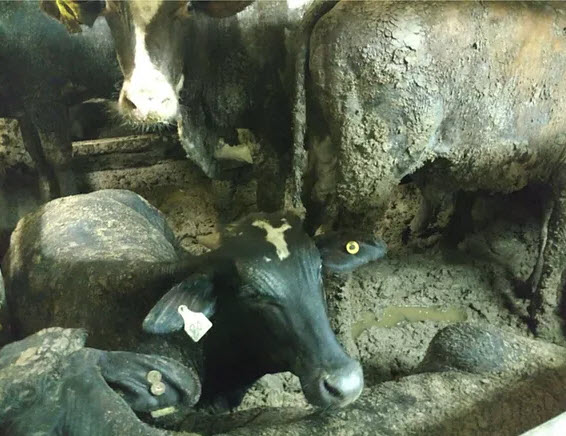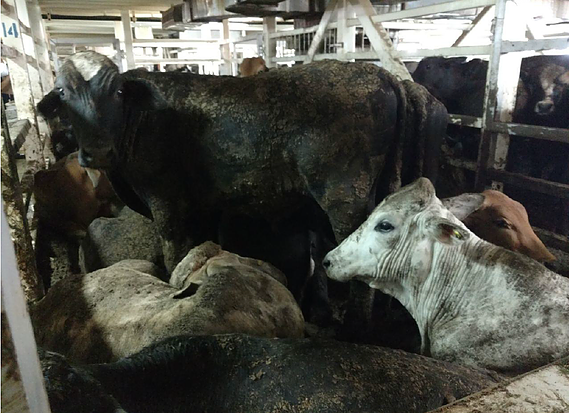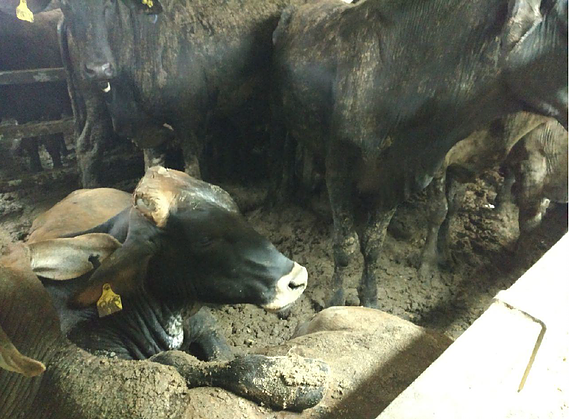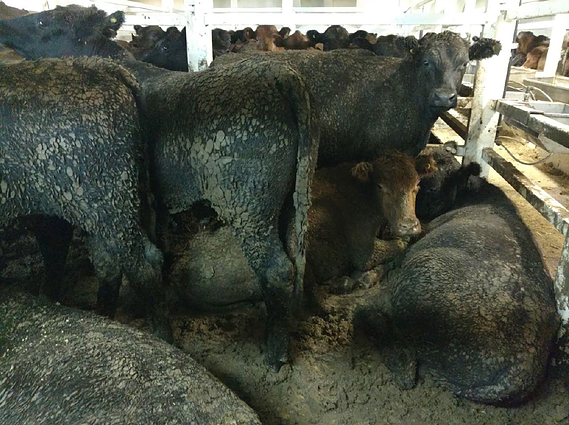Live Export Ship Sails, but Trade Now Under the Spotlight
A ship carrying 25,000 effluent-covered cattle has been allowed to leave Brazil, although a court decision in favor of an animal welfare group has order a stop to future live exports.
On Friday, an injunction was placed on the shipment of 27,000 head of cattle due to leave for Turkey on board the ship Nada. Judge Djalma Moreira Gomes in Sao Paulo also placed a ban on live export from the country "to prevent the export for slaughter of live animals, from throughout the national territory, until the destination country adopts slaughter practices in line with those of the Brazilian legal system."
On Sunday part of that decision was reversed, the Nada was allowed to sail, as it was deemed that a delay would cause more suffering to the animals. However, the broader ban on live export remains in place.
The injunction was a response to a case brought by the animal rights group National Forum for the Defense and Protection of Animals (Forum Animal). A veterinary report commissioned by Gomes found that the animals were held in small and unhygenic spaces. According to the report: "The immense amount of urine and excreta produced and accumulated during this period provided an impressive deposition on the floor of a layer of muddy waste. The ammonia odor on these floors was extremely intense making breathing difficult. In some of these floors, the noise pollution (in decibels) resulting from the continuous operation of the fans was intense and clearly inopportune.”
The report also denounced the practices used in the transport of animals by road to vessels: "The trucks carrying animals from the animal quarantine region (EPE - Pre-Shipment Station), located about 500 km from the Port of Santos (Altinópolis and Sabino municipalities), brought oxen in number of 27 to 38 animals per bucket, standing, these compartments with obstructed lateral visibility thanks to the bonding of adhesive tapes in the holes of the structure in order to make it difficult for third parties to inspect (observe, shoot, photograph) their interior.”
The veterinarian inspector said: "I reiterate that inside the trucks there is no possibility of changing the position of the animal once it has been shipped."
The veterinarian concluded that there was abundant indications that prove mistreatment and explicit violation of animal dignity. The situation also failed to meet reasonable provisions of the five freedoms guarantors of animal welfare.
The case “represents an extremely important point in the history of Brazil’s protection and defense of animals,” said Forum Animal in a statement. “We hope that the export of live animals will be definitively banned.” The group says the report highlights the maltreatment of animals, which are subject to restrictions on access to water and food, unhealthy environments, extreme deprivation of space and non-existent body hygiene.
Lyn White, Director of Strategy for Animals Australia, an animal welfare organization working against the live export trade globally, says: “Brazil’s Federal Court’s decision demonstrates that when the live export trade is viewed through independent eyes — through a lens devoid of politics and self-interest — the unnecessary suffering is obvious.
“Upon viewing evidence of cruelty at sea and in importing countries, the Federal Court determined that live export does not reflect Brazil’s animal protection laws, its societal values, nor does it satisfy the international standards to which Brazil is a signatory.

that matters most
Get the latest maritime news delivered to your inbox daily.
“Like the Australian live export trade, Brazil’s live exporters enjoyed operating without public or political scrutiny for decades. Those days are now gone. It is clear that exporters will fight to have this decision over-turned. What they can’t change is the Federal court’s damning independent assessment of their trade nor that the spotlight is now firmly on their industry.”




